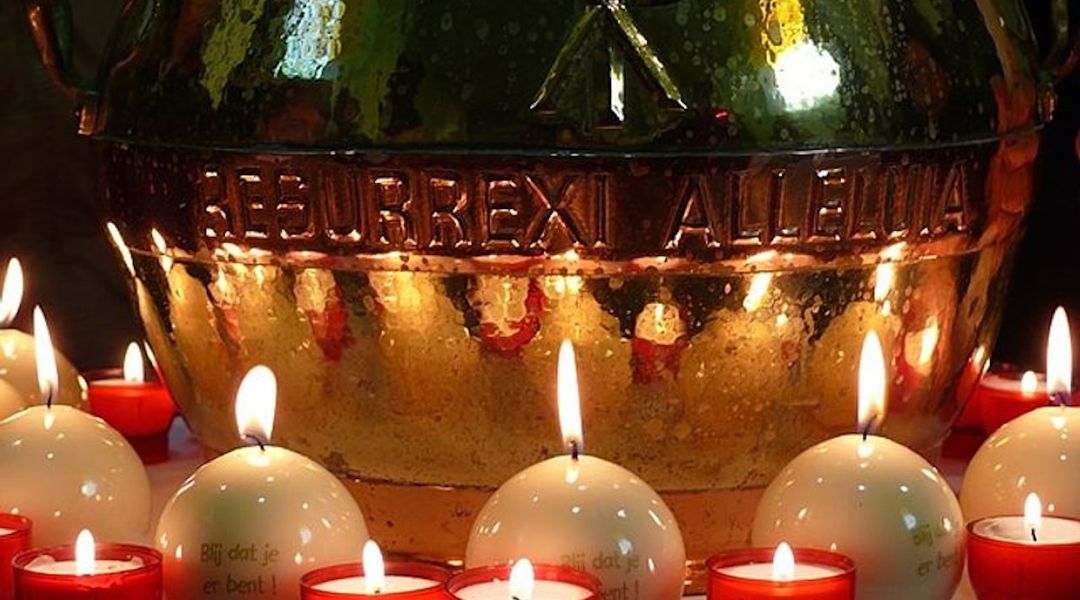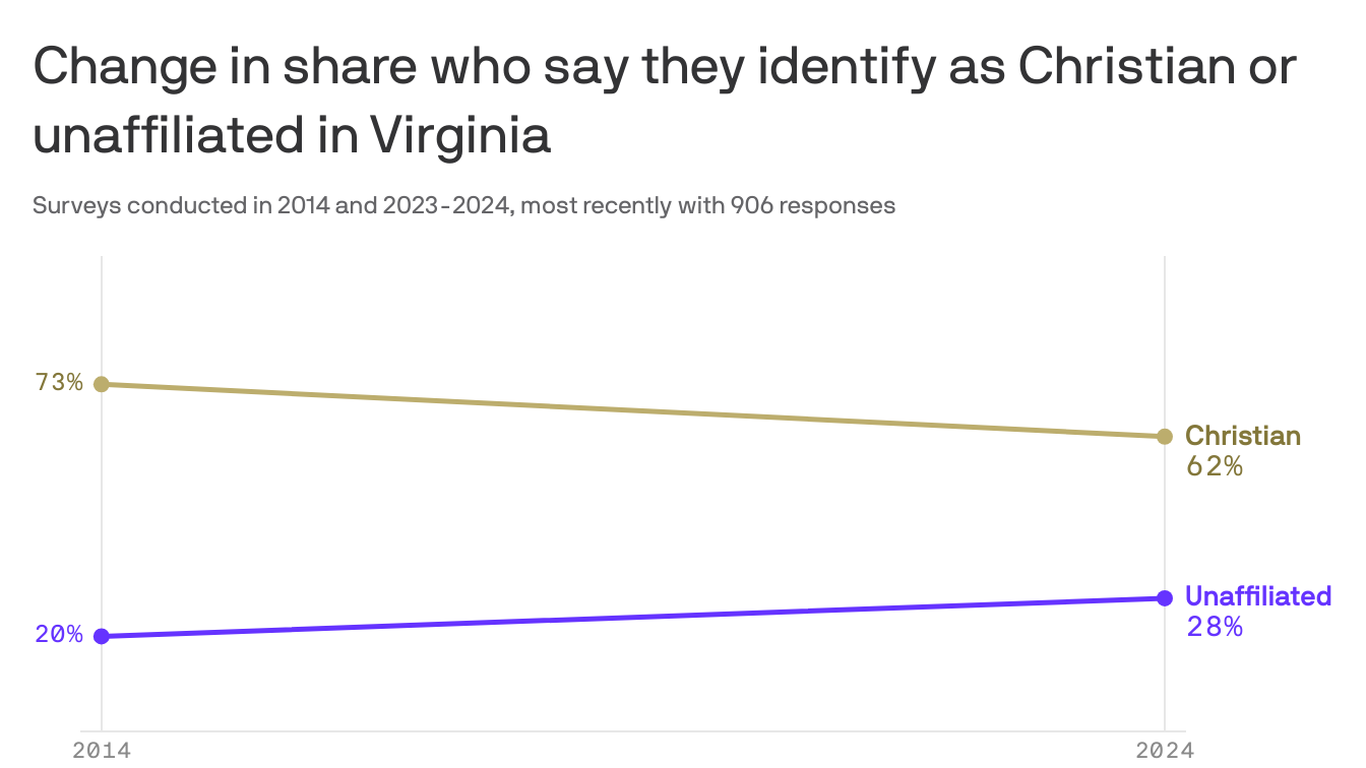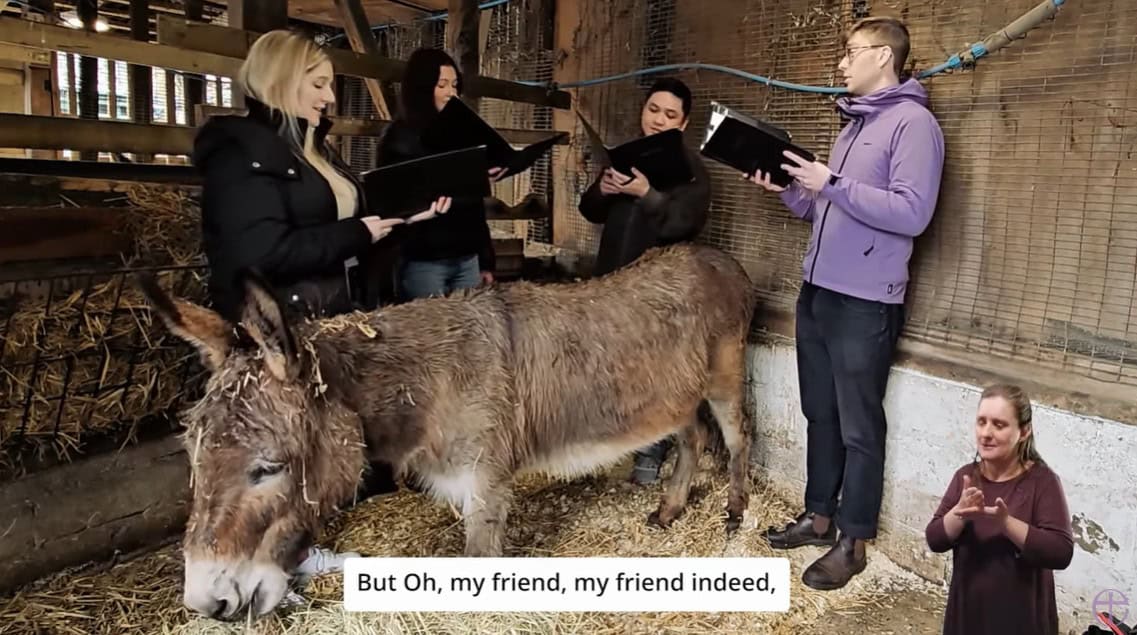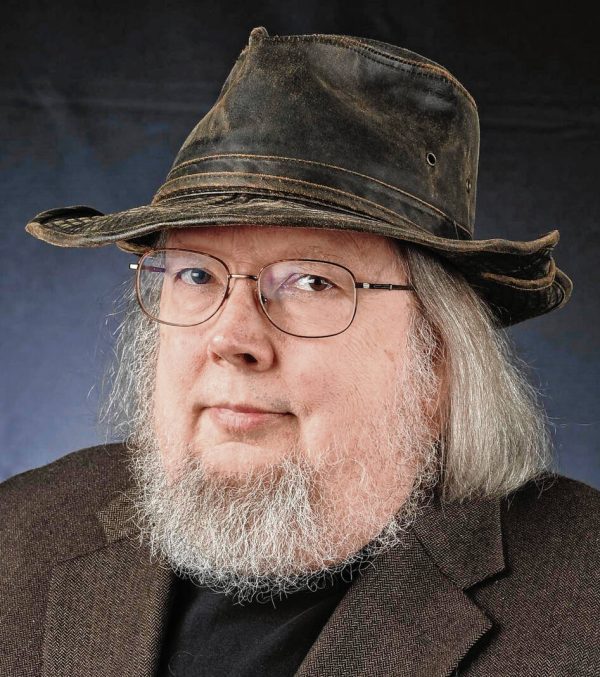Faith in Flux: How Humanity's Spiritual Landscape is Dramatically Transforming
Religion
2025-03-27 11:27:46Content

In a groundbreaking study, Pew Research Center has uncovered a profound shift in global religious landscapes, highlighting a dramatic transformation in how people approach spirituality and belief systems. The research reveals a significant decline in traditional religious affiliations, particularly within Christianity and Buddhism, as younger generations increasingly explore alternative spiritual paths.
This emerging trend signals more than just a statistical shift; it represents a fundamental reimagining of personal faith and cultural identity. Millennials and Gen Z are at the forefront of this spiritual revolution, challenging long-established religious norms and seeking more personalized, flexible approaches to understanding existential questions.
The study suggests that while conventional religious institutions are experiencing unprecedented membership drops, individuals are not abandoning spirituality altogether. Instead, they are crafting unique spiritual journeys that blend elements from various traditions, philosophical perspectives, and contemporary worldviews.
As traditional religious boundaries continue to blur, researchers observe a fascinating phenomenon of spiritual exploration that transcends geographical and cultural limitations. This global trend points to a more interconnected, fluid understanding of belief that reflects the complex, diverse nature of modern human experience.
The implications of this shift are profound, suggesting a potential restructuring of social and cultural dynamics as new forms of spiritual expression emerge and gain prominence in the 21st century.
The Global Spiritual Shift: Unraveling the Decline of Traditional Faiths
In an era of unprecedented global transformation, the landscape of religious belief is undergoing a profound and dramatic metamorphosis. As traditional religious institutions grapple with changing societal dynamics, a seismic shift in spiritual consciousness is reshaping how individuals, particularly younger generations, conceptualize faith, meaning, and personal connection to the divine.Navigating the Spiritual Crossroads: A Radical Transformation of Global Religious Identity
The Erosion of Traditional Religious Frameworks
The contemporary religious landscape is experiencing a unprecedented deconstruction of long-established spiritual paradigms. Pew Research Center's groundbreaking analysis reveals a complex narrative of religious disengagement that transcends simple statistical observations. Christianity and Buddhism, historically dominant spiritual traditions, are witnessing significant membership declines, particularly among millennial and Generation Z populations. This phenomenon represents more than a mere statistical trend; it signifies a fundamental reevaluation of spiritual identity. Young individuals are increasingly rejecting institutionalized religious structures, seeking more personalized, flexible, and experiential approaches to understanding existential questions. The rigid doctrinal frameworks that once provided comprehensive worldviews are being systematically dismantled and reconstructed through individual spiritual exploration.Emerging Spiritual Pathways and Alternative Belief Systems
As traditional religious institutions experience membership erosion, a vibrant ecosystem of alternative spiritual practices is rapidly emerging. These new pathways are characterized by syncretism, personal agency, and a holistic approach to spiritual understanding that transcends conventional religious boundaries. Mindfulness practices, meditation techniques derived from Eastern philosophical traditions, and individualized spiritual experiences are gaining unprecedented popularity. These approaches offer practitioners a more fluid, adaptable framework for spiritual engagement, emphasizing personal growth, psychological well-being, and interconnectedness over rigid doctrinal compliance.Technological Influence and Spiritual Transformation
Digital technologies and global interconnectedness have dramatically accelerated the deconstruction of traditional religious narratives. Social media platforms, online communities, and global information networks have exposed individuals to diverse spiritual perspectives, challenging monolithic religious worldviews and encouraging critical examination of inherited belief systems. The democratization of spiritual knowledge through digital platforms has empowered individuals to curate personalized spiritual experiences. This technological mediation has fundamentally altered how people discover, interpret, and engage with spiritual concepts, creating a more dynamic, interactive relationship with existential questions.Psychological and Sociological Implications
The global spiritual transformation extends beyond religious institutional dynamics, reflecting profound psychological and sociological shifts. Younger generations are demonstrating increased skepticism towards hierarchical authority structures, prioritizing personal authenticity, emotional intelligence, and experiential understanding over prescribed religious doctrines. This evolving spiritual consciousness represents a sophisticated response to complex global challenges, emphasizing individual agency, critical thinking, and holistic personal development. The emerging spiritual landscape is characterized by flexibility, inclusivity, and a nuanced understanding of human complexity.Future Trajectories of Global Spiritual Evolution
As traditional religious frameworks continue to experience transformation, the future of spiritual engagement remains dynamically uncertain. The ongoing deconstruction of established religious institutions suggests an increasingly personalized, fluid approach to understanding existential experiences. Researchers and sociologists anticipate continued fragmentation of religious identities, with individuals increasingly constructing multifaceted spiritual narratives that draw from diverse philosophical and cultural traditions. This evolution represents not a decline of spiritual engagement, but a sophisticated reimagining of human spiritual potential.RELATED NEWS
Religion

Religious Liberty Under Siege: Why America Must Keep Fighting for Global Faith Freedom
2025-03-27 15:11:39







